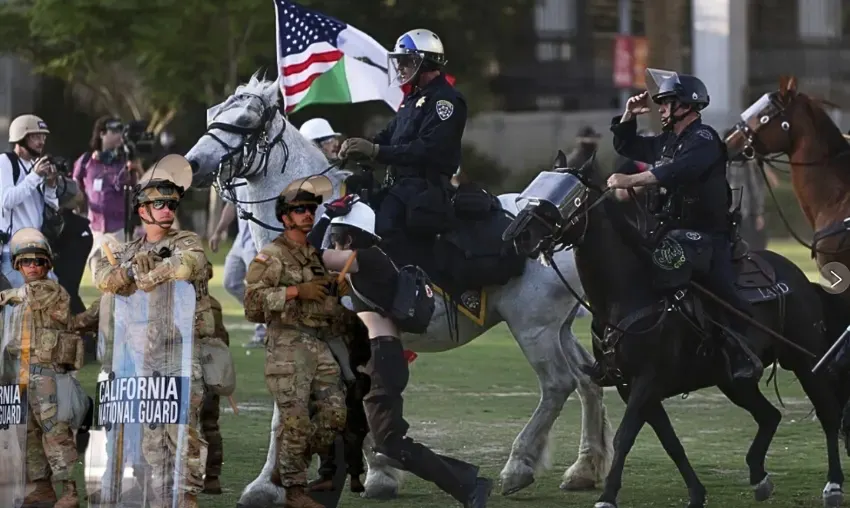SAN FRANCISCO – In a stunning move, the 9th U.S. Circuit Court of Appeals on Thursday temporarily halted a ruling by federal judge Charles R. Breyer (Case No.: State of California v. Trump et al., 3:25-cv-04172-CRB) that would have required President Donald Trump to return control over National Guard troops deployed in California to Governor Gavin Newsom. Just hours earlier, Breyer had ruled that Trump’s use of the National Guard violated the 10th Amendment and exceeded his statutory authority. The National Guard, he said, had been wrongly activated under “Title 10” of the U.S. Code – a provision that allows presidential control of the Guard only in exceptional circumstances such as invasion, rebellion, or an inability to enforce the law. “The protests in Los Angeles fall far short of the threshold for a rebellion,” Breyer wrote in his opinion.
The temporary stay came less than 24 hours before the ruling was set to take effect. The appeals court scheduled a hearing for Tuesday. At the center of the dispute is the deployment of approximately 500 Guard troops to support federal immigration raids. Photos showing uniformed National Guard members working alongside ICE agents outside the Metropolitan Detention Center in Los Angeles sparked national outrage. The situation in the city escalated – protests against the raids turned violent, with police deploying mounted units, batons, and tear gas.
Governor Newsom had filed suit demanding an immediate end to the troop deployment. “Today was a test for democracy – and we passed it,” he said optimistically after Breyer’s ruling. But following the appeals court’s intervention, California is once again cast into Washington’s shadow. The White House responded sharply. Spokeswoman Anna Kelly called the ruling “unprecedented” and accused Judge Breyer of overruling the constitutional authority of the president as commander-in-chief. She added that the administration would “take this case to the highest court to reverse this abuse of power.”
Meanwhile, roughly 700 U.S. Marines are preparing for possible deployment at the Naval Weapons Station in Seal Beach. According to state attorney Nicholas Green, some of them are expected to replace National Guard troops in Los Angeles within 24 hours – a deliberate escalation. The case raises a fundamental question at the heart of American democracy: who decides when to deploy armed forces domestically – an elected governor or a president showing increasingly authoritarian tendencies? For Judge Breyer, the answer is clear. During the hearing, he demonstratively held up a copy of the U.S. Constitution and stated, “This is the difference between a constitutional government and a King George.”
The protest – and the power struggle – is likely to enter its next round. Strangely, the court did not offer a detailed statement. Such behavior is frustrating for objective reporting.
